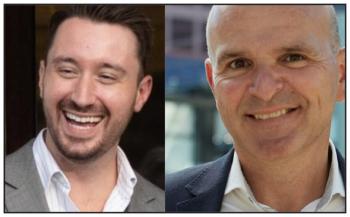Image Caption
Summary
Local Journalism Initiative Reporter
Windspeaker.com
Federal Minister of Tourism Randy Boissonnault was in Calgary on Wednesday, March 9, bringing with him welcome news to an Indigenous tourism conference.
Boissonnault announced the Canadian government has pledged more than $1.3 million to bolster the Indigenous tourism industry in Alberta.
The announcement was made during the Indigenous Tourism Association of Canada (ITAC) three-day conference, which began on Tuesday, March 8 and continued until March 10.
For starters, Boissonnault announced the federal government would provide $843,000 to support a five-year strategy laid out by Indigenous Tourism Alberta (ITA).
This funding will go towards a program that has been assisting Indigenous tourism operators in Alberta adapt to market changes.
Boissonanault also announced Canadian officials would provide $500,000 to the TELUS Spark Science Centre in Calgary to launch an experience titled The Sacred Defenders of the Universe.
This digital experience will share Indigenous knowledge and tradition to visitors of the renowned science centre.
It is projected that almost 20,000 people will visit the exhibit by next year. ITA officials believe the combined funding announcements will create 100 new jobs and also help create, maintain or expand 45 Indigenous businesses.
Boissonnault said it is imperative that his government support the Indigenous tourism industry, not only in Alberta but throughout the country.
“About 80 per cent of international tourists want to come to Canada for an authentic Indigenous experience,” he said. “So, the country and the tourism sector needs the Indigenous tourism sector to do well, to perform well and to get through this really hard time in the pandemic.”
ITAC officials have requested $65 million from the federal government over the next three years to assist in their pandemic recovery efforts.
Boissonnault, who is also the associate minister of Finance, was unwilling to speculate how much funding the Indigenous tourism industry would receive in the 2022 budget in April.
“All I will say is that the budget is underway,” he said. “We’ve received that request. It’s with Indigenous Services Canada and we’re going to continue to work with the Indigenous tourism sector to rebuild and to recover. It’s what tourists want. And look, it’s not just what international tourists want. It’s what Canadians want to see. And it’s what Canadians want to experience. So, we’re going to be in this together.”
Boissonnault was asked whether other Indigenous provincial or territorial tourism associations can expect to receive similar funding announcements in the coming weeks.
Boissonnault said he is currently working with colleagues and other funding announcements could be soon made.
“I will say stay tuned,” he added. “Because when we can make announcements that showcase the best of Indigenous tourism in this province and in this country, we will.”
Some of the funding towards ITA’s strategic plan has already been spent.
“It literally went so that Indigenous tourism operators can get proper executive level mentorship… and 20 businesses that got whole new websites or a revamp for their websites,” Boissonnault said.
Funding was also spent on non-Indigenous businesses to bolster their cultural sensitivity when they are welcoming tourists.
Shae Bird, ITA’s CEO, said money was well spent on its mentorship initiatives.
“The mentorship was a fantastic opportunity where we connected through a partnership where we connected 11 of our businesses with executive level mentorship to help further their business maturity over this down time,” he said. “And we saw incredible results from that, whether it’s pricing, restricting their business strategy to gain more online awareness to building marketing strategies. All these key pieces that entrepreneurs don’t have the time or the understanding to fully execute to grow their business.”
Shae said as part of ITA’s strategic plans, 20 Indigenous tourism businesses in Alberta received assistance to get new or revamped websites.
“We know that the consumers are finding their activities and travel inspiration online and they need to be bookable. They need to have content,” Bird said. “These are all the facets we were able to support.”
Mary Anne Moser, the president and CEO of the TELUS Spark Science Centre, was pleased with the federal funding her facility will be receiving to create a new experience.
“Tourists will be enthralled by the powerful storytelling in this new digital immersion experience at Spark, as they explore culturally, learn and grow,” Moser said. “The project is led by Indigenous artists and will engage broad audiences in Indigenous ways of knowing. And the story is spectacular. We are grateful for the financial support to bring together a team with such talent, creativity and perspective.”
George Chahal, MP for Calgary Skyview, is also glad to see his federal government providing some tourism funding in his province.
“I am proud of our government’s commitment to the tourism sector in Alberta,” he said. “In particular, our investments in support of Alberta’s fast-growing Indigenous tourism sector are helping showcase Alberta as a leading Indigenous tourism destination in Canada.”
Local Journalism Initiative Reporters are supported by a financial contribution made by the Government of Canada.

